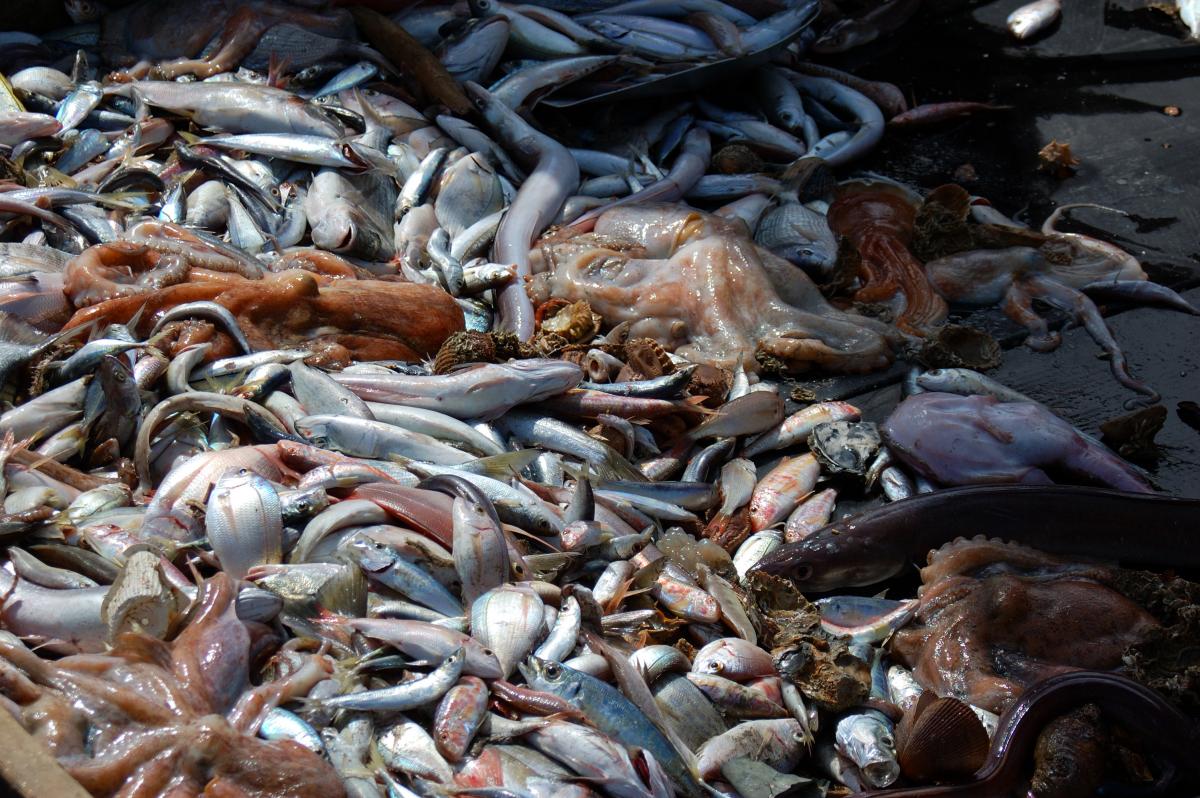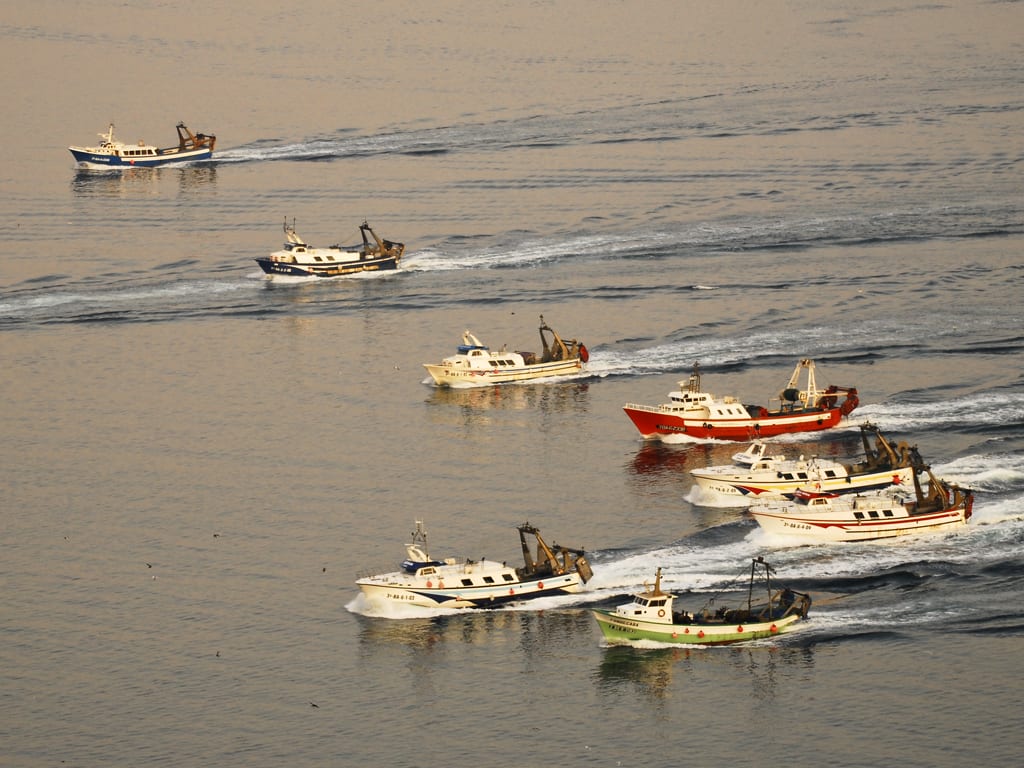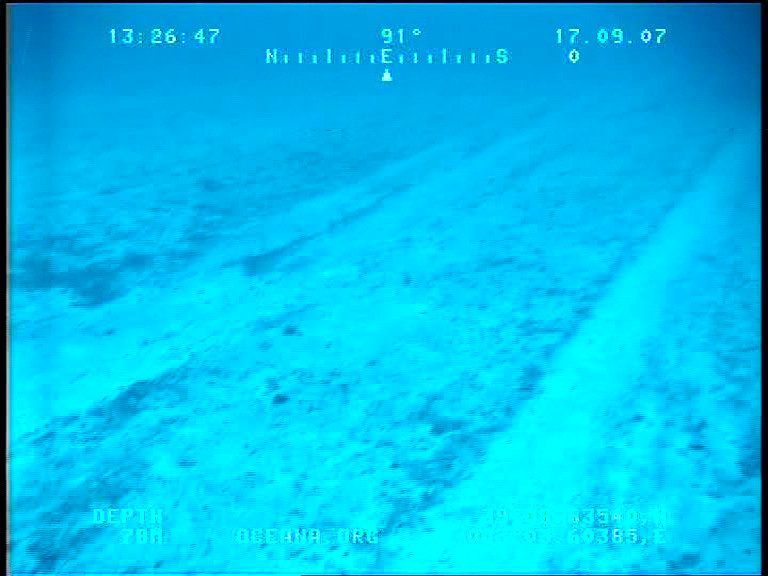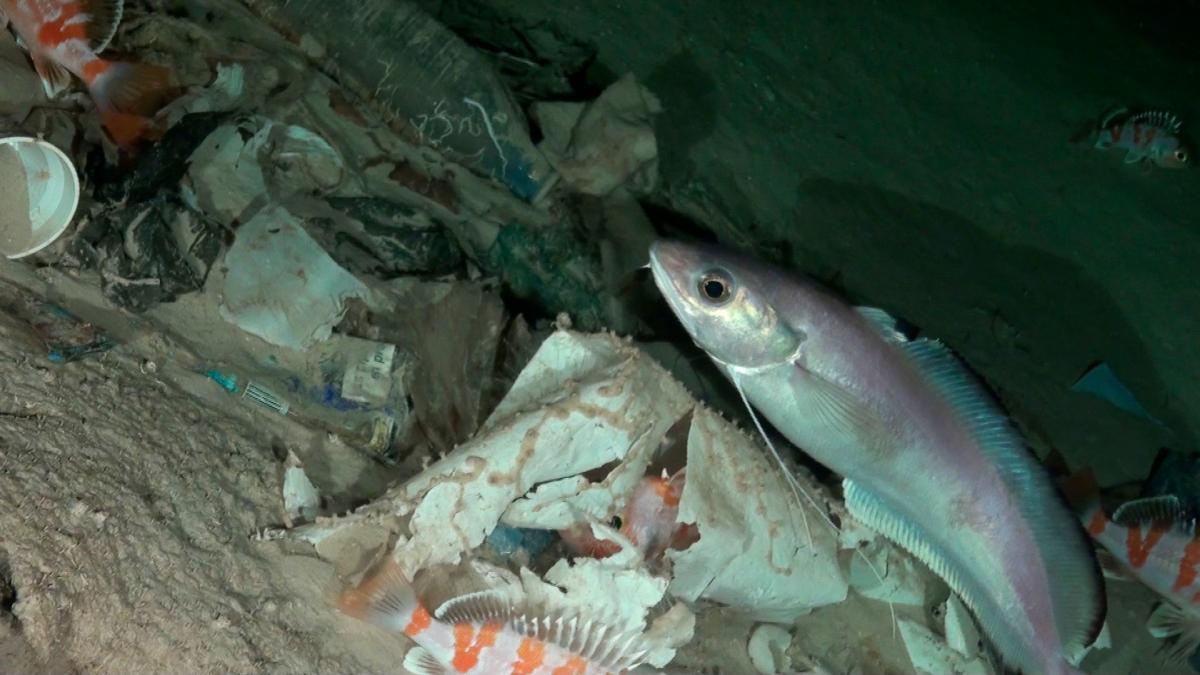August 18, 2018
Overfishing and pollution have trashed the Mediterranean
BY: Agata Mrowiec
Topics: Habitat Protection, Plastics, Sustainable Fisheries
The Mediterranean is the top tourism destination worldwide. Sunbathers and swimmers flock to the sea during summer holidays.
Idyllic though it may seem, all is not well. The Mediterranean is the world’s most overfished sea, with the highest percentage of unsustainably harvested fish populations, according to a recent report from the United Nations Food and Agriculture Organization. Increasing human activity makes Mediterranean marine ecosystems some of the most imperiled in the world.
Of all the human threats to the Mediterranean, overfishing, bottom trawling and ocean plastic pollution are the most destructive. They are the worst offenders, trashing the world’s most popular sea.

Missing fish
Overfishing in the Mediterranean Sea began around the 1970s with the development of technology that allowed fleets to fish farther, deeper and with greater intensity. As a result, 90 percent of Mediterranean fish populations are now harvested in excess of science-based recommendations. The most commercially important species, including European hake, red mullet and anglerfish, are exploited 10 times over suggested limits.
MedReAct, an environmental organization protecting Mediterranean marine biodiversity, blames political inaction, inadequate control measures and weak enforcement for the critical state of fishing. Oceana holds the European Union accountable for this dire situation. Taken together, the Mediterranean EU member states catch the most fish in the region, and have the biggest and most powerful fleet.
In the face of this crisis, fisheries ministers from most Mediterranean countries gathered in 2017 in Malta, where they signed the MedFish4Ever Declaration, a 10-year strategy for cooperative management of the region’s fisheries.
“I hope that this declaration will come to be seen as a turning point — for a bright future for fishermen, coastal communities and fishing resources alike,” said Karmenu Vella, Commissioner for Maritime Affairs and Fisheries, in a press release from the European Commission.

Underwater bulldozers
Bottom trawling is another widespread problem in the Mediterranean. Large, heavy nets are towed along the seafloor, acting like ocean bulldozers that can wipe out everything in their way.
“Trawling affects a lot of species like a Hoover and this has an impact on us, small-scale fishers,” a 34-year old fisher from Malta told Oceana. “I see a lot of difference in the past 10 years,” he said, “and I think there needs to be something done before it’s too late.”
Trawling can cause irreversible damage to sensitive habitats like deep-sea coral reefs, gorgonian gardens and sponge grounds. It rips up coral and sponge bed habitats that fish and shellfish depend on for breeding, spawning and nurseries. This can significantly hamper the recovery of depleted fish stocks.
Trawling is also wasteful. Scientists estimate that it generates as much as half of all discarded fish and marine life globally. Most unwanted catches are juveniles that die in nets and are tossed overboard. Undersized hake and red mullet, which live and feed near the bottom, can make up 60 percent of bycatch for Mediterranean trawlers. These fish will never have a chance to grow and reproduce, risking damage to the population.
Industrial trawlers also cause habitat loss. Corals, sponges and seagrasses are particularly vulnerable. Some Mediterranean seagrass beds, which act as nursery grounds for many fish species, have already disappeared.
In 2016, Oceana successfully contributed to banning bottom trawling in the Strait of Sicily, between Malta, Italy and Tunisia, and in another region between Mallorca and Menorca in the Balearic Islands. The Western Mediterranean Sea should be next. Oceana in Europe is now calling on fisheries ministers in Spain, France and Italy to ban bottom trawling to at least 100 meters deep, and all year-round to protect fish recovery and vulnerable marine life.

Tons of trash
Between 1,000 and 3,000 metric tons of plastic are floating in the Mediterranean Sea, according to a 2015 study by researchers from the University of Cádiz in Spain. That’s comparable to the level of plastic swirling in the subtropical ocean gyres, according to the study, where debris accumulates at the center of spinning currents of water.
“The Mediterranean shows one of the highest levels of plastic pollution in the world,” Andrés Cózar, the leader of the study, told Dive Magazine.
Densely populated coasts, a high influx of tourists and increasing maritime traffic are responsible for most of the floating plastic. Plastic accounts for up to 95 percent of the trash collected on shorelines, the ocean surface and sea floor, according to the United Nations Environment Program.
Oceana has found plastics in the deepest and darkest areas of the sea. On one research expedition, Oceana scientists found single-use plastic products at 1,000 meters — their underwater robot’s maximum depth.
Marine litter was the primary focus at the international Our Ocean conference, held in Malta in 2017. Governments made a number of pledges to reduce the negative impacts of plastic waste. The conference also mobilized the business community.
Coca-Cola, the largest beverage company in the world, announced that its consumer packaging will be entirely recyclable in the next seven years. Sky, a European media giant, launched the Sky Ocean Rescue campaign, with the aim of educating the public about ocean plastic pollution. These and other ambitious solutions presented in Malta generated 437 commitments, €7.2 billion in financial promises and pledges to protect an extra 2.5 million square kilometers of marine habitats. Time will tell if these promises are met.
The Mediterranean, once healthy and thriving, is better known today as the world’s most overfished sea. Overfishing, bottom trawling and plastic pollution won’t disappear in a single day. Even enthusiastic solutions take time.
“We know the situation, we have the solutions,” said Lasse Gustavsson, the executive director Oceana in Europe. “All we’re missing is political action.”



